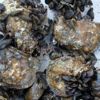
Research shows that the mussels that typically colonize a restored oyster reef can more than double its overall filtration capacity.

Research shows that the mussels that typically colonize a restored oyster reef can more than double its overall filtration capacity.
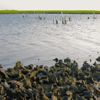
VIMS researchers show that the quality of coastal habitat is an important factor in managing commercially targeted species.
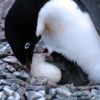
A long-term study of the links between climate and marine life along the rapidly warming West Antarctic Peninsula reveals how changes in physical factors send ripples up the food chain.
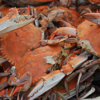
Research funded by the National Science Foundation shows that infectious diseases play a part in crab population declines.
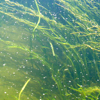
VIMS-led survey shows that bay-grass coverage increased from 48,195 to 59,927 acres, reversing the downward trend of the previous 3 years.

VIMS professor Deborah Steinberg leads crowd on enthusiastic voyage From Plankton to Planet during evening presentation at Kimball Theater.
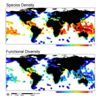
Tropical coral reefs have been long thought to be the areas of greatest marine biodiversity, but a new trait-based study of reef fishes reveals new hotspots of biodiversity.
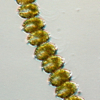
VIMS researchers continue to monitor a large bloom of Alexandrium monilatum in the lower York River and blooms of Cochlodinium and other species throughout the lower Bay.

VIMS alumnus Michael Wagner, Assistant Professor at Michigan State University, is researching and developing methods to control one of the most destructive invasive species in the Great Lakes—the sea lamprey.
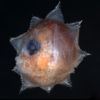
A dozen students visit VIMS for an intensive summer course on the microscopic world of fish larvae.
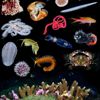
VIMS Professor J. Emmett Duffy and colleagues call for establishment of a comprehensive network to monitor marine biodiversity, a key bellwether of ocean and human health.

A study that began as a class project among graduate students at the Virginia Institute of Marine Science is now a peer–reviewed research article in Ecology, the flagship journal of the Ecological Society of America.
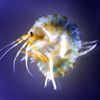
New collaborative study between VIMS and USGS credits tiny crustacean "grazers" for maintaining health of seagrass meadows.
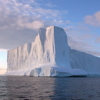
Documentary film will highlight Antarctic research by professor Deb Steinberg and colleagues at VIMS, Rutgers, and other PAL-LTER partners.

VIMS researchers continue to monitor a large but patchy bloom of Alexandrium monilatum in the York River near VIMS.
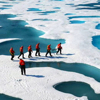
VIMS professor Walker Smith provides independent expertise regarding an Arctic Ocean discovery that scientists say is as dramatic and unexpected as finding a rainforest in the middle of a desert.
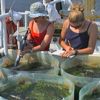
20 years after the Rio Earth Summit, a team of prominent ecologists calls for renewed international efforts to curb the loss of biological diversity, which is compromising nature’s ability to provide goods and services essential for human well-being.
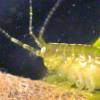
New study from international research team including professor J. Emmett Duffy of VIMS highlights need for stronger efforts to protect biodiversity and the benefits it provides.

VIMS professor Bob Diaz is part of a nationwide team that recently received a three-year, $12M grant to study the effects of the Deepwater Horizon oil spill on the Gulf and its marine life.
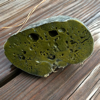
Coastal residents ask about the strange flotsam they've found atop waterways and strewn along beaches.
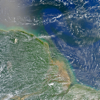
VIMS researchers join an international team to study how the Amazon River's huge freshwater plume affects the biology and chemistry of the Atlantic Ocean.
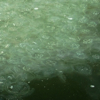
Study shows that jellyfish can drastically alter marine food webs by shunting food energy from fish toward bacteria.
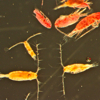
A new VIMS study shows that turbulence from boat propellers can and does kill large numbers of copepods—tiny crustaceans that are an important part of marine food webs.

An international research team that includes professor Emmett Duffy of VIMS finds that loss of plant biodiversity disrupts the fundamental services that ecosystems provide to humanity.

Professor Deborah Bronk leads a study of the Arctic coastal ecosystem, and how climate change might affect nutrient supplies, the food web, and native peoples.
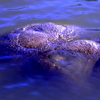
Mysterious blob in man-made lake turns out to be a large colony of freshwater bryozoans—aka "moss animals."
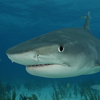
VIMS emeritus professor Jack Musick oversees a global study suggesting that 33% of shark, skate, and ray species are threatened with extinction.
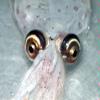
Dr. Tracey Sutton will take part in a news conference at the Royal Institution in London to announce the final results of the landmark, decade-long project.
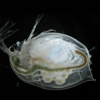
A new study co-authored by VIMS professor Kam Tang reveals that tiny aquatic organisms known as "water fleas" play an important role in carrying bacteria to otherwise inaccessible lake and ocean habitats.
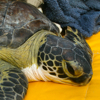
The presence of this tropical species is unusual for this time of year and this far north in the Bay.